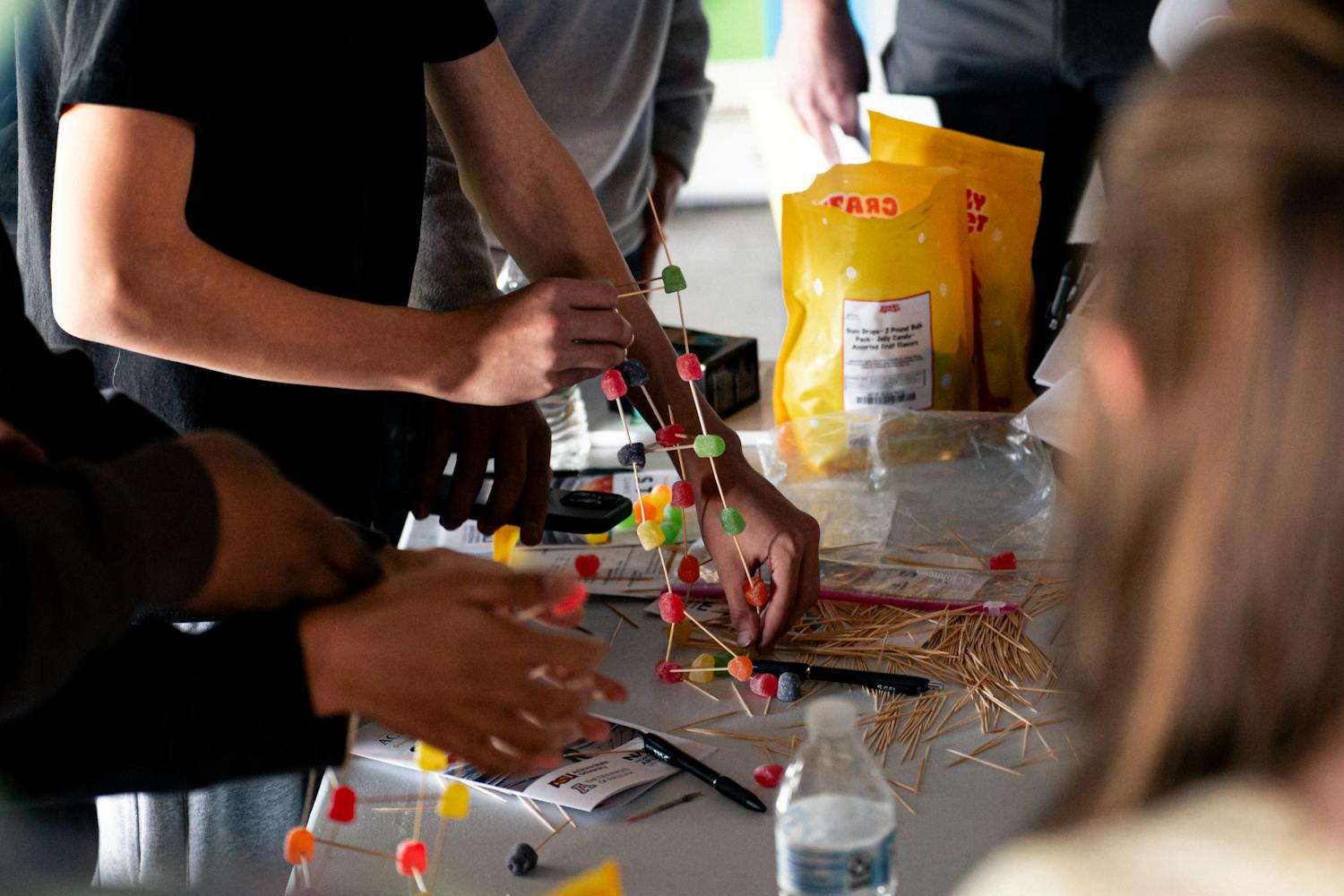It's 6 a.m. on Monday. Your alarm clock beeps loudly. You drag yourself out of bed, groggy, on a few hours of sleep and head into another long week. By 9:15 you're starving (of course, there was no time for breakfast) and sitting through your second class of the day. After surviving back-to-back classes and choking down a quick lunch, it's time to punch the time clock at work before heading home to tackle a mountain of homework.
You might not like admitting it, but face it: you're stressed.
Many students on campus have a schedule similar to this one, and it is understandable that stress can start to weigh on them.
"I'm always stressed," says Brittainy Cornett, a finance senior who goes to school and works full time. Although she is under constant pressure, she says it motivates her to push hard to meet her deadlines.
"Overcommitted, motivated students are not a bad thing," says Janey Swans, a Barrett Honors College adviser.
She says there are two kinds of stress: normal stress and distress. Normal stress pushes students to want to work harder and meet their commitments, while distress is discouraging, she says.
"Everyone has experienced stress, advisers expect there will be stress, and they want to help them [students] relax and have a good college experience," she says.
If students come to her showing signs of distress that she can't help with, she refers them to the counseling and consultation clinic.
The clinic is located in the Student Services building. Dan Schulte, of counseling and consultation, says it is here to help "students deal with stress in all sorts of ways." Schulte works with students in many different ways, from one-on-one consulting to workshops.
"People feel like coming to see someone in a professional setting is not OK," Schulte says. He says scheduling a visit is completely acceptable, and the staff will help the student sort out what is and isn't stress and develop a plan to deal with it.
Many students "don't recognize how much stress they have in their life," he says.
The counseling and consultation center helps students address different concerns that are stressing them out. "Overcoming Shyness," "Eating Disorder Group," "Interpersonal Relations" and "Graduate Student Growth Group" are some of the workshops offered.
Besides the workshops, Schulte, says there are a few easy tips to help students reduce their stress levels.
One tip he offers is exercising.
"There is a real magic in exercise, physiologically and psychologically, when done regularly," he says.
Also, eating and sleeping right is essential. And, since he is on a college campus, he knows that drinking and drug use is a way that some students try to escape stress.
"It makes sense at the time," he says, "but the long-term consequences can be bad."
If a student starts getting stressed, "give yourself permission to address the stress," he says.
Unfortunately, many students who are stressed do not think of getting help and just try and deal with it themselves, says Nick McLamb, a computer science senior. Although this is his first semester with 400-level courses, he says he's not stressed because avoids enormous course loads.
Whether taking a mental break, shooting some hoops or getting professional help, college students all have different ways to cope with their stress.
Even if your stress level is not at its max yet, with upcoming papers and exams, your limits will be tested. The most important thing to remember, as you grab your triple shot of espresso at 9 p.m. for your all-nighter, is that you're not alone.
Reach the reporter at amanda.m.gonser@asu.edu.




